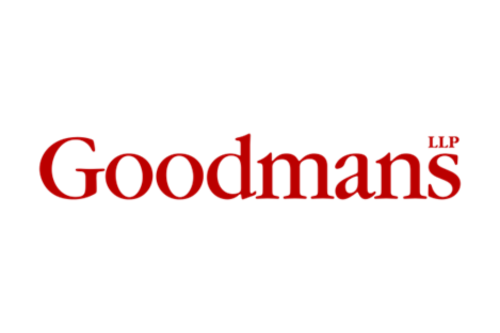As pandemic-driven economic instability has heightened the risk factors for white-collar crime, so too has the importance of compliance been reinforced. Good compliance means a diminished chance of receiving criminal charges or even an investigation if there is fraud, corruption or threats from “whistleblowers.”
Toronto litigator Kenneth Jull tells a story to illustrate this. A corporate client had come to him, describing a disgruntled former employee who had threatened to go to authorities unless the client paid money for his silence.
“What I told him was, ‘First off, you cannot pay any money to this person because that’s hush money,’” and the Criminal Code prohibits paying someone off to hide criminal conduct.
In this particular case, Jull had helped the client devise a solid compliance program, and they were then able to turn the tables on the former employee effectively.
“We went to the FBI and the RCMP first, and we said, ‘Look, you may get a complaint from X. We don’t think we’ve done anything wrong, [but] will you come and look at our books and at what we’ve been doing?’ We struck first, and the result was: not only was there not a complaint, but this guy was then investigated,” and may have even been charged with obstructing justice or extortion, says Jull. This result would not have been possible without a strong compliance program already in place, he notes.
So, is now the time to buckle down on compliance measures? Jull, counsel at Gardiner Roberts LLP and co-author of Profiting From Risk Management and Compliance, cites a paper by academic Amitai Aviram published in the Yale Law Journal. In it, Aviram analyzed enforcement levels of the U.S. Securities Exchange Commission over 10 years and compared it to the Standard & Poor index during that same timeframe. The results showed “an inverse relationship between the economy and enforcement,” Jull says: when the S&P was at its lowest, regulatory enforcement was at its highest, and vice versa.
The reasons for high enforcement in a poor economy are threefold, says Jull. The first is the temptation: when times are bad, and margins are narrower, people don’t want to give up what they have, such as the second car, big house or private schools. Individuals and companies alike will start cutting corners and cheating under increased pressure.
The second reason is that troubled times and markets result in more complaints to regulators by disgruntled investors. “Regulatory authorities start to get many more complaints and act on those,” he says.
Third — and also in bad times — people get fired and take revenge by going to regulators. Jull saw this recently, he says, in a threat made to an employer: “If you don’t give me what I think I deserved, I’m going to go to the FCA [Financial Conduct Authority] and RCMP and tell them what happened.”
Although an economic downturn due to the pandemic may deter companies from spending on compliance, “now is the time when a company is more at risk than ever,” he says.
Investigation, enforcement and prosecution
Canada’s track record for enforcement of criminal negligence and offences such as bribery and fraud are “moderate to maybe even a little tepid,” says Jull.
There has been too little prosecution, or “underenforcement,” of corporate crime such as fraud, he says. Jull is also concerned by the increasing use of administrative monetary penalties against companies found to have committed securities fraud — such as Sino-Forest, Bre-X Minerals, YBM Magnex, Philip Services and Livent — and in other contexts, such as competition law.
There’s been only one case in Canadian history when authorities used the Criminal Code provisions for insider trading, he says. “Almost every other case of insider trading is dealt with either as a regulatory offence or preceded by way of administrative monetary penalties.” In the United States, individuals get jailed for insider trading. Although it’s easy to see why prosecutors in Canada prefer administrative monetary penalties, says Jull — it’s easier to prove culpability on a balance of probabilities rather than beyond a reasonable doubt, and in front of a tribunal rather than a court — “that’s one thing I’ve seen that’s becoming more and more prevalent, and that worries me a bit in the sense that we’re seeing less use of the criminal law.”
Canadian regulators and authorities don’t put as much dedicated resources into investigating and prosecuting white-collar matters as they should, agrees Lawrence Ritchie, a litigation partner in Osler, Hoskin & Harcourt LLP in Toronto. This approach contrasts to the United States, he says. “Part of this is political accountability or a lack of it.”
According to Ritchie, Canada has a very diffused regulatory and law enforcement structure because expertise is spread among the various provinces and the federal government. He has advocated for a national and collaborative enforcement approach across the country.
Bribery and price-fixing
Ritchie says that pandemic-related delays in the supply chain can create incentives for wrongdoing and corruption as people try to jump the queue and bribe foreign officials.
On the other hand, since a lot of bribery is done face-to-face, with cash in envelopes and meetings over boozy lunches, this may decrease the chances for corruption, with “fewer access points for people to be doing things they shouldn’t,” says Jull. He adds that the restricted personal contact also means fewer opportunities for comparing pricing, which can lead to price-fixing. “It’s easier over dinner, with drinks, to say, ‘so, what are you doing with pricing this year?’” but harder on a Zoom call.
Cybersecurity
A recent StatsCan publication indicates that in a survey on cybersecurity at the beginning of the pandemic, about 42 per cent of Canadians had experienced a security violation, says Linda Fuerst, a senior partner in Norton Rose Fulbright LLP in Toronto. However, only five per cent had reported the incident to an authority such as the police or the Canadian Anti-Fraud Centre. “Lots of money has been lost due to COVID-related fraud alone,” she says, including through ransomware attacks.
Fuerst has also seen increasing requests by police authorities for assistance by corporate clients in investigating potential breaches or threats that the police authorities have become aware of independently.
Whistleblowing programs
An increase in whistleblower programs in Canada has seen some success to date, Fuerst adds. The Ontario Securities Commission has to date awarded over $8.6 million to whistleblowers for tips relating to serious breaches of securities law, she says. One recent and publicized example is when the RCMP and the OSC cooperated and laid charges against the cannabis company CannTrust Holdings.
Joven Narwal of Narwal Litigation in Vancouver has “deep concerns” about whistleblowing programs, which he believes are ineffective “in the war on money laundering.”
First, he says, they only reward the reporting of misconduct after it’s happened. Second, research has suggested that financial incentives may decrease whistleblowing. And third, the programs “create a strong incentive to provide false or misleading information.”
But securities regulators investigate whistleblowers’ reports, Fuerst says. “The bigger concern I see for corporations is the risk that information about potential internal wrongdoing gets reported to the regulator first, rather than internally.”
Privacy and constitutional litigation
Narwal, who specializes in white-collar crime and financial misconduct, is concerned that “government intrusion does pose a very real threat to our daily lives.” Information on suspected wrongdoers is collected and disclosed through various techniques that are not subject “to any real quality control at the collection level.” When people share suspicious transactions with the Canada Revenue Agency, he says that this may spark costly investigations of innocent people.
He notes a steady increase of orders to freeze assets, where no one has made allegations, and the use of compulsion powers that are not judicially authorized to seize private communications. Narwal has launched constitutional challenges to both issues — the freezing of assets and the seizure of private communications — and is concerned that public outcry over money laundering will cause damage through the use of unjustified state intrusions.
“I think that those concerns to some extent need to be addressed within the politics of lawmaking over white-collar crime and money laundering,” Narwal says; “however, it’s going to be left to the bar to litigate the constitutionality of many of these proposals.”
He has already seen many changes to search-and-seizure techniques used in capital markets, he says. British Columbia also created mandatory minimum sentences under its Securities Act, even though the Supreme Court of Canada has found these to be unconstitutional. He also sees constitutional concerns in the cross-border context, especially between Canada and the United States.
“Given the extensive cooperation between Canadian and foreign regulators, I anticipate that the concern which often materializes over what use can be made in the foreign jurisdiction of compelled testimony or compelled processes in Canada will very much come to the forefront.”
One issue arising with increasing frequency, particularly given changes to the U.S. anti-money laundering regime, is the enforceability in Canada of subpoenas issued under the U.S. legislation without a corresponding mutual legal assistance treaty request, he says.
“Why do you need compliance programs? Because if you are offside, you’re at risk of class actions that are hooking onto the statutory infractions.”





